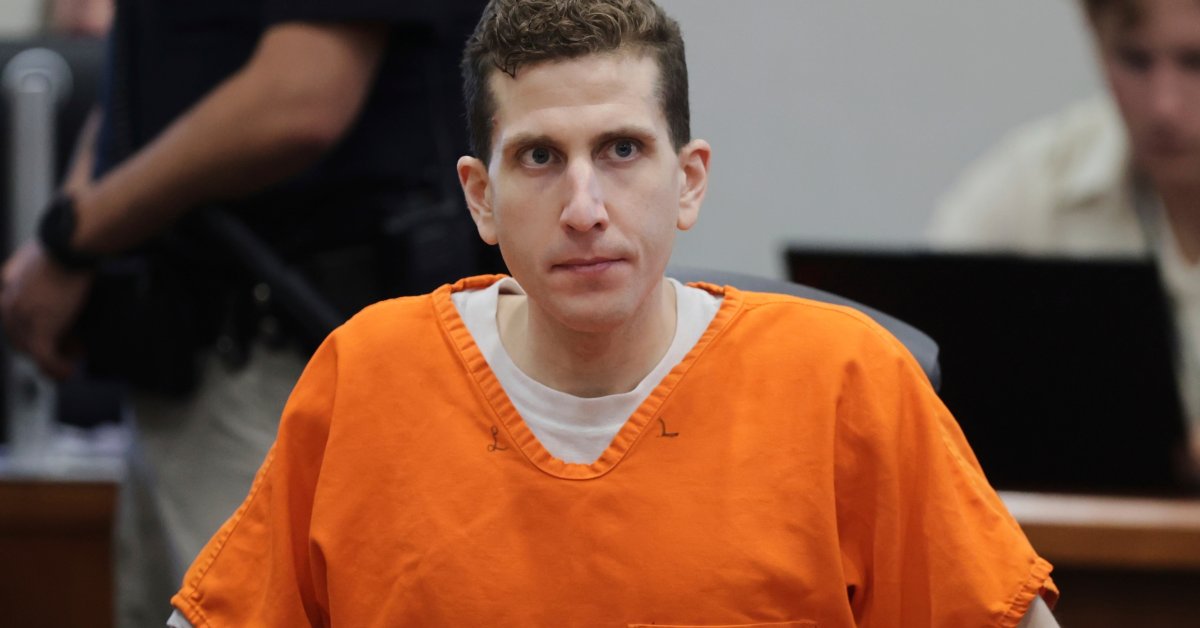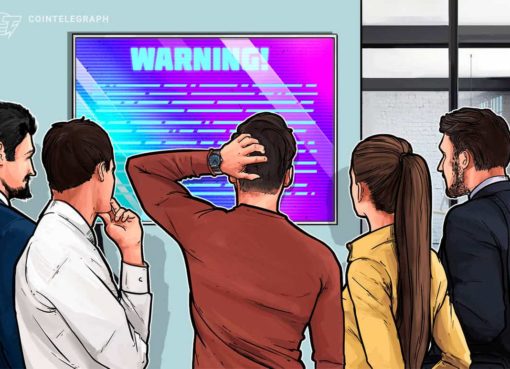Bryan Kohberger was sentenced on Wednesday to four consecutive terms of life imprisonment for the murders of four Idaho students. He was handed an additional 10 years for one count of burglary.
Kohberger, 30, pleaded guilty to the fatal stabbing of four University of Idaho students—Kaylee Goncalves, Madison Mogen, Xana Kernodle, and Ethan Chapin. The murders took place at an off-campus house in the early hours of Nov. 13, 2022.
For each first-degree murder, Kohberger was sentenced to a term of life in prison by District Court Judge Steven Hippler in Boise, Idaho. This sentence was widely anticipated as part of a plea deal that was organized earlier this month, in exchange for not receiving the death penalty.
When Kohberger initially took responsibility for the students’ deaths, he said nothing of his motive or reasoning. Kohberger said “I respectfully decline” when offered the chance to make a statement ahead of the sentencing on Wednesday. The response elicited a strong reaction from those present in the courtroom, with someone calling him a “coward.”
Hippler noted prior to reading the sentences that the motive for the murders may never be known.
“There is no reason for these crimes that could approach anything resembling rationality,” he said. “Even if I could force him [Kohberger] to speak, which legally I cannot, how could anyone ever be assured that what he speaks is the truth?
The hearing on Wednesday morning was open to the public and livestreamed. Showcasing the wide interest in the high-profile case, more than 50 people lined up before dawn outside the Ada County Courthouse hoping to gain a seat, with some having been waiting since 4 p.m. the previous day.
The victims’ families and housemates were able to read impact statements prior to the sentencing.
The two surviving housemates, Bethany Funke and Dylan Mortensen, provided victim impact statements. Funke had hers read by a friend while Mortensen read hers herself.
Mortensen described the pain of losing her friends, and the physical and emotional strife she has experienced since the night of the murders.
“He didn’t just take them from the world. He took them from me—my friends, my people who felt like my home, the people I looked up to and adored more than anyone, took away my ability to trust the world around me,” Mortensen told the court. “What he did shattered me in places I didn’t know could break… I was forced to learn how to survive the unimaginable.”
Mortensen went on to refer to Kohberger as “evil,” calling him a “hollow vessel, something less than human, a body without empathy, without remorse.”
Paying tribute to her late housemates, Mortensen said she honors them by living each day. “Speaking today is to help me find some sort of justice for them, and I will never let him [Kohberger] take that from me,” she said.
The families of the victims also addressed the court room, delivering poignant statements.
Mogen’s father, Ben Mogen, said that his daughter was the “only great thing I ever really did, [the] only thing I was ever really proud of.” He read aloud the last thing his daughter ever wrote to him, a Father’s Day card.
“I’ll never be able to replace her… I just miss her so much,” he told the courtroom.
Mogen’s grandmother, Kim Cheeley, referenced Kohberger’s family as she delivered her own statement. Kohberger’s mother was present in the courtroom for the sentencing.
“My heart aches for the kids’ roommates and the families of the other victims, and also the family of the perpetrator,” she said.
Goncalves’ sister, Alivea Goncalves, spoke directly to Kohberger, confronting him by calling him a “sociopath, psychopath, and murderer.”
“I won’t stand here and give you what you want. I won’t offer you tears. I won’t offer you trembling,” she said. “Disappointments like you thrive on pain, on fear, and on the illusion of power.”
She pressed Kohberger with questions about the case and her sister’s murder, questions she says “reverberate violently.”
“Did you prepare for the crime before leaving your apartment? Please detail what you were thinking and feeling at this time,” she asked. “Where is the murder weapon? What were Kaylee’s last words?”
What do we know about the murders of the four Idaho students?
The night in question and the hours that followed were initially shrouded in mystery, and it was over a month before Kohberger was caught. Some mysteries surrounding the case still remain, but this is what we know of how the murders unfolded, according to court documents.
At the time of the murders, Kohberger was a criminology Ph.D. student at Washington State University (WSU), which is located around 10 miles west of the University of Idaho in Moscow, Idaho, just on the border of Washington.
According to a police affidavit filed in December 2022, the four victims—who shared a house with two others that were unharmed during the attacks—shared a regular college Saturday evening out, arriving home in the early hours of Nov. 13. Funke and Mortensen, the surviving housemates, told law enforcement that the deceased returned home from their night out at around 2:00 a.m. Per court documents, Mortensen recalls opening her door at around 4:00 a.m. after hearing what she thought was Goncalves saying something close to “there’s someone here.” She looked out of her door and saw nothing. Mortensen opened her door a second time after hearing crying from the direction of Kernodle’s room. When she opened her door for a third time, after once more hearing crying, she saw a man wearing a mask that covered his “mouth and nose.” The man walked past her and towards the sliding door at the back of the house. Mortensen retreated back into her room and locked the door, immediately texting her housemates.The figure was described as 5 ft. 10 in. “or taller, male, not very muscular.”
Hours later, still scared, Mortensen asked her friends to come over, and it was then that the surviving students discovered the bodies of their housemates and called 911, just before noon.
How was Kohberger caught?
Per the affidavit, DNA was found on a knife sheath located at the scene of the crime. (The knife belonging to the sheath—or any other murder weapon—has still not been found.) The sheath was just one piece of evidence that later implicated Kohberger in the murders, in addition to surveillance cameras recording Kohberger’s model of car passing by the house where the murders took place several times on the night in question.
Officers also determined that Kohberger’s phone had “stopped reporting to” the local network for roughly two hours on the morning of the murders between around 3 a.m. and 5 a.m.
Law enforcement in Pennsylvania, where Kohberger is from, found evidence from Kohberger’s family residence which, when sent to a lab in Idaho, found that the DNA located at that residence was of a strong relation to the DNA found on the knife sheath at the scene of the crime. “At least 99.9998% of the male population would be expected to be excluded from the possibility of being the suspect’s biological father,” the affidavit said.
Kohberger was then arrested on Dec. 30, 2022, and extradited to Idaho.
Reactions to the plea agreement
President Donald Trump weighed in on the case ahead of the sentencing, posting on Truth Social on Monday that he hoped the judge would uncover the motive behind the murders.
“While life imprisonment is tough, it’s certainly better than receiving the death penalty but, before sentencing, I hope the judge makes Kohberger, at a minimum, explain why he did these horrible murders,” Trump said. “There are no explanations, there is nothing. People were shocked that he was able to plea bargain, but the judge should make him explain what happened.”
Goncalves’ family responded to Trump’s words via a statement of their own shared on Facebook. The family has been very vocal in their opposition to the plea agreement.
“Kaylee, Maddie, Xana, Ethan—you have always mattered so much,” the family said. “You are so loved and your nature, your light, your entire being is so bright and visible.”




